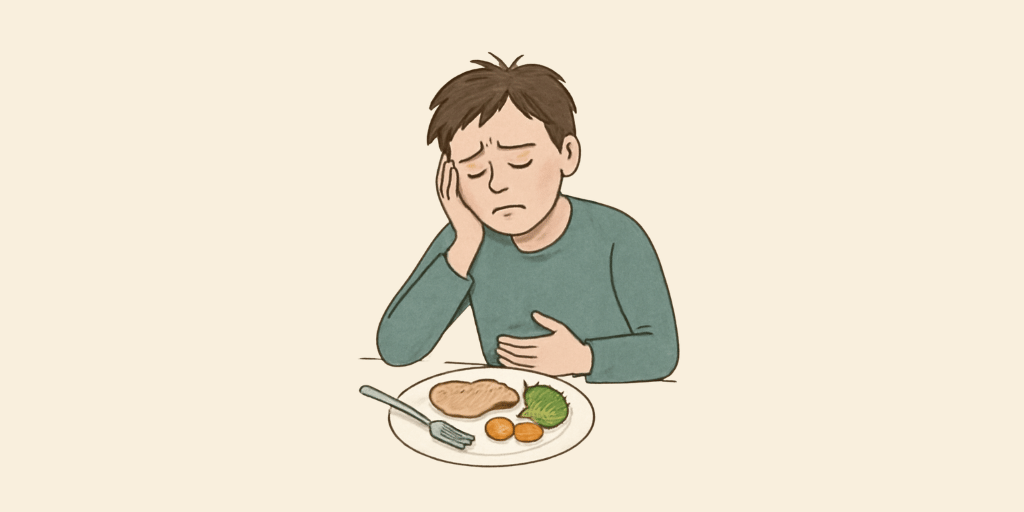Ayurvedic Name: Aruchi
Description:
Aruchi refers to loss of appetite or tastelessness resulting from imbalanced Agni, excessive Kapha, or psychological stress. It results in an aversion to food, fatigue, and dullness. Ayurvedic management includes Pachan (digestive herbs) like Jeera, Hing, Pippali, and lifestyle modifications to restore appetite and metabolic balance.
Signs & Symptoms:
- Aruchi (Loss of Appetite): Complete or partial loss of interest in food, often linked to emotional or physical illness.
- Agnimandya (Poor Digestion): Reduced appetite due to weak digestion or digestive disorders.
- Dourbalya (Weakness): Fatigue and weakness from insufficient nourishment.
- Shwasa (Breathlessness): Difficulty breathing due to a lack of energy or nourishment.
- Trishna (Excessive Thirst): Increased thirst due to dehydration from lack of food intake.
- Gaurava (Heaviness in the Body): A sensation of heaviness or lethargy, often resulting from poor nutrition.
Diagnosis:
Appetite Assessment and Clinical Observation
Risk Factors:
- Dietary Factors
Nutrient Deficiencies: Lack of essential nutrients like zinc, iron, and B12 can cause a loss of appetite.
Excessive Intake of Junk Food: Consuming foods high in sugar and fat can impair appetite and reduce the desire to eat. - Lifestyle Factors
Chronic Stress and Anxiety: Emotional distress can affect appetite, often leading to either excessive eating or a complete loss of appetite.
Irregular Eating Habits: Skipping meals or eating at inconsistent times can disturb the body’s natural hunger signals. - Medical Conditions
Infections or Illnesses: Illnesses like viral infections, cold, or flu often result in a temporary loss of appetite.
Chronic Diseases: Conditions like cancer, thyroid disorders, or liver disease can result in long-term loss of appetite.
Complications:
- Malnutrition (Ahar Kshaya): A loss of appetite results in reduced food intake, leading to malnutrition and weight loss.
- Fatigue (Dourbalya): Loss of appetite causes weakness and tiredness due to insufficient nutrition.
- Weakened Immunity (Pratirodh Kshaya): Insufficient nutrient intake compromises the immune system, making the body more vulnerable to infections.
- Mood Disorders (Manasik Dourbalya): Chronic loss of appetite can contribute to depression, anxiety, and other mood-related issues.
- Muscle Weakness (Mamsa Dourbalya): Persistent lack of nourishment leads to muscle wasting and general weakness in the body.
Epidemeology:
More common in elderly individuals, especially those with chronic diseases, depression, or cancer.
Affects approximately 5-10% of the general population, with higher rates in individuals with gastrointestinal disorders or psychological conditions.
Loss of appetite is also a common symptom in acute infections or inflammatory diseases.
Prevalence increases in elderly people, especially those with multiple comorbidities or those in long-term care facilities.

